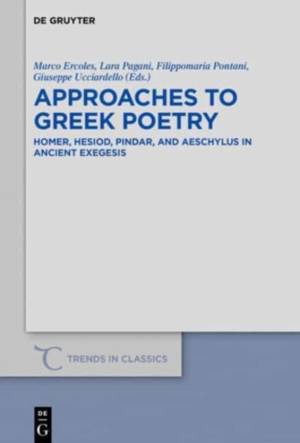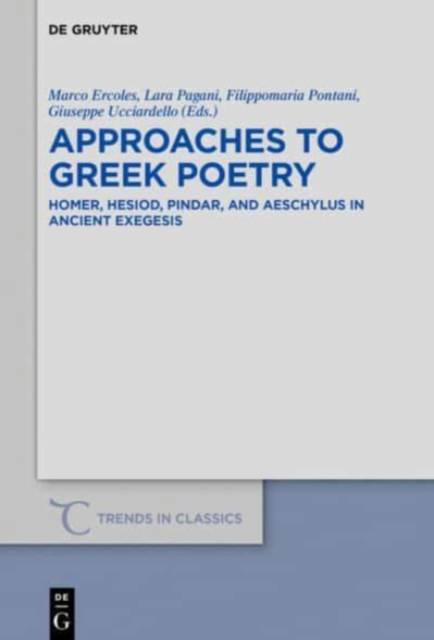
- Afhalen na 1 uur in een winkel met voorraad
- Gratis thuislevering in België vanaf € 30
- Ruim aanbod met 7 miljoen producten
- Afhalen na 1 uur in een winkel met voorraad
- Gratis thuislevering in België vanaf € 30
- Ruim aanbod met 7 miljoen producten
Approaches to Greek Poetry
Omschrijving
In the last decades the field of research on ancient Greek scholarship has been the object of a remarkable surge of interest, with the publication of handbooks, reference works, and new editions of texts. This partly unexpected revival is very promising and it continues to enhance and modify both our knowledge of ancient scholarship and the way in which we are accustomed to discuss these texts and tackle the editorial and exegetical challenges they pose.
This volume deals with some pivotal aspects of this topic, being the outcome of a three-year project funded by the Italian Ministry for Education, University and Research (MIUR) on specific aspects of the critical re-appraisal of Homer, Hesiod, Pindar, and Aeschylus in Greek culture throughout antiquity and the Middle Ages. It tackles issues such as the material form of the transmission of the exegesis from papyri to codices, the examination of hitherto unexplored branches of the manuscript evidence, the discussion of some important scholia, and the role played by the indirect tradition and the assimilation of the exegetical heritage in grammatical and lexicographical works.
Some strands of the ancient and medieval scholarship are here re-evaluated afresh by adopting an interdisciplinary methodology which blends modern editorial techniques developed for 'problematic' or 'non-authorial' medieval texts with current trends in the history of philology and literary criticism. In their diversity of subject matter and approach the papers collected in the volume give intended readers an excellent overview of the topics of the project.
Specificaties
Betrokkenen
- Uitgeverij:
Inhoud
- Aantal bladzijden:
- 400
- Taal:
- Engels
- Reeks:
- Reeksnummer:
- nr. 73
Eigenschappen
- Productcode (EAN):
- 9783110629606
- Verschijningsdatum:
- 14/01/2019
- Uitvoering:
- Hardcover
- Formaat:
- Genaaid
- Afmetingen:
- 160 mm x 234 mm
- Gewicht:
- 703 g

Alleen bij Standaard Boekhandel
Beoordelingen
We publiceren alleen reviews die voldoen aan de voorwaarden voor reviews. Bekijk onze voorwaarden voor reviews.










